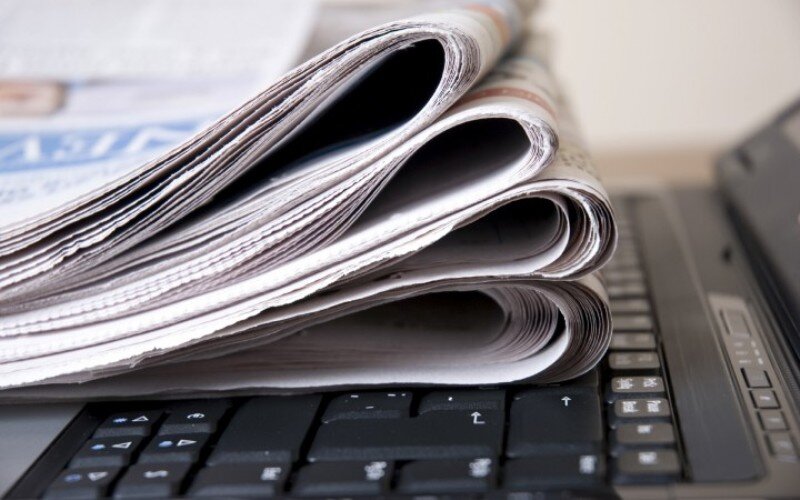Tehran Papers

Vatan-e-Emrooz dedicated its editorial to Iran's new missile test and said: Following the test of the Khorramshahr 4 missile, the Zionists have been greatly frightened. The regime’s media and experts have interpreted the ballistic missile as specifically designed to destroy the usurpers of Quds.
The occupied territories are located at a distance of 1,100 kilometers from Iran’s western borders, and with this missile, all the sensitive points in Israel can be targeted from the soil of our country. Although the Zionist regime has advanced missile defense systems, the Palestinian resistance groups over the past years and even just 3 weeks ago, showed that the success of these systems, such as the Iron Dome, is not 100% successful, and it is possible to reduce their effectiveness by using different strategies (including changes in missiles or mass firings). Of course, this regime has other missile defense systems that are designed to counter Iranian long-range ballistic missiles, but they have not been fully operational yet.
Etemad: The necessity of dealing decisively with the Taliban
In a commentary, Etemad discussed the relationship between Afghanistan and the Taliban by analyzing the views of Iran's former cultural advisor to Afghanistan. It said: "Definitely the Islamic Republic has the ability to deal more firmly with the Taliban, and everyone knows that Iran's power is much higher than the Taliban's.” The paper further said considering all the services that have been giving to the Taliban and especially to the country and the people of Afghanistan over the last 20 years, we must see a series of serious actions to compensate Iran's services, including the implementation of the Helmand Water Treaty of 1973. The publication added the agreement was considered weak by some critics at the time and the contract was never implemented, except partly in the first years of Hamed Karzai's government or partly by Zahir Shah’s government. In such a situation, Iran should pursue the issue of water right more decisively.
Shargh: Peace table in Oman
In a report, Shargh addressed the Sultan of Oman's visit to Iran. It wrote: Considering the fact that a revitalization of the JCPOA is a difficult task and the situation surrounding the current nuclear activities is very sensitive, some observers emphasize that Haitham bin Tarik's trip to Tehran is very important. This visit is particularly important especially after the recent visit of Amir Abdollahian to Muscat in which he acknowledged the Omani side is following the JCPOA issue. Considering Amir Abdollahian’s remarks, coupled with the visits of the officials of the two countries, this idea comes to mind that perhaps Muscat during this trip seeks to create conditions in line with continuation of the JCPOA revival talks or at least trigger resumption of negotiations.
Of course, in order to reach this point, the diplomatic power of Oman should be taken into consideration. It should be evaluated whether Muscat has the political power to achieve such a goal or not as there is a view that Muscat is just an average regional actor. Therefore, "Omanis cannot be more than a mediator and messenger in any case. In the best possible scenario, Oman can traditionally play an effective role in cases such as the exchange of dual national prisoners". It should be considered that the Omanis do not have the capacity and potential to act as an intermediary in the nuclear tension between Tehran and Washington, but they only act as "messengers" between Iran and the U.S.
Sobh-e-No: Green light for investment
In its editorial, Sobh-e-No discussed the Sultan of Oman's trip and wrote about the economic aspect of the trip. It said: The most important cases that Sultan Haitham bin Tarik examines during his trip to Tehran, are economic issues and a train connection from Iran to Oman and from there to Saudi Arabia and the United Arab Emirates. Maybe after détente in the region that followed the Tehran-Riyadh agreement, it is the best time to pursue economic works and investments, and this trip can be a green light for making investments in Iran, and other countries of the Arab League will be encouraged to do so.
Ham Mihan: Sultan of Oman carries message of America and Europe
In an interview with Ali Jannati, Iran's former ambassador to Kuwait and the secretary of the Persian Gulf Studies Center, Ham Mihan discussed the Sultan of Oman's trip to Tehran. It wrote: Now that Sultan Haitham bin Tarik has replaced Sultan Qaboos, his views may be different from Qaboos, but in foreign policy he follows the same way. The Omanis mediated on the Yemen crisis and have been in contact with Iran, Ansarallah and other Yemeni currents. They were also active regarding the exchange of prisoners and the resolution of Iran-Saudi issues. Considering the visit of the Sultan to Tehran, it seems that he will carry messages or proposals from America and Europe to revitalize the JCPOA or exchange risoners.

No comments:
Post a Comment